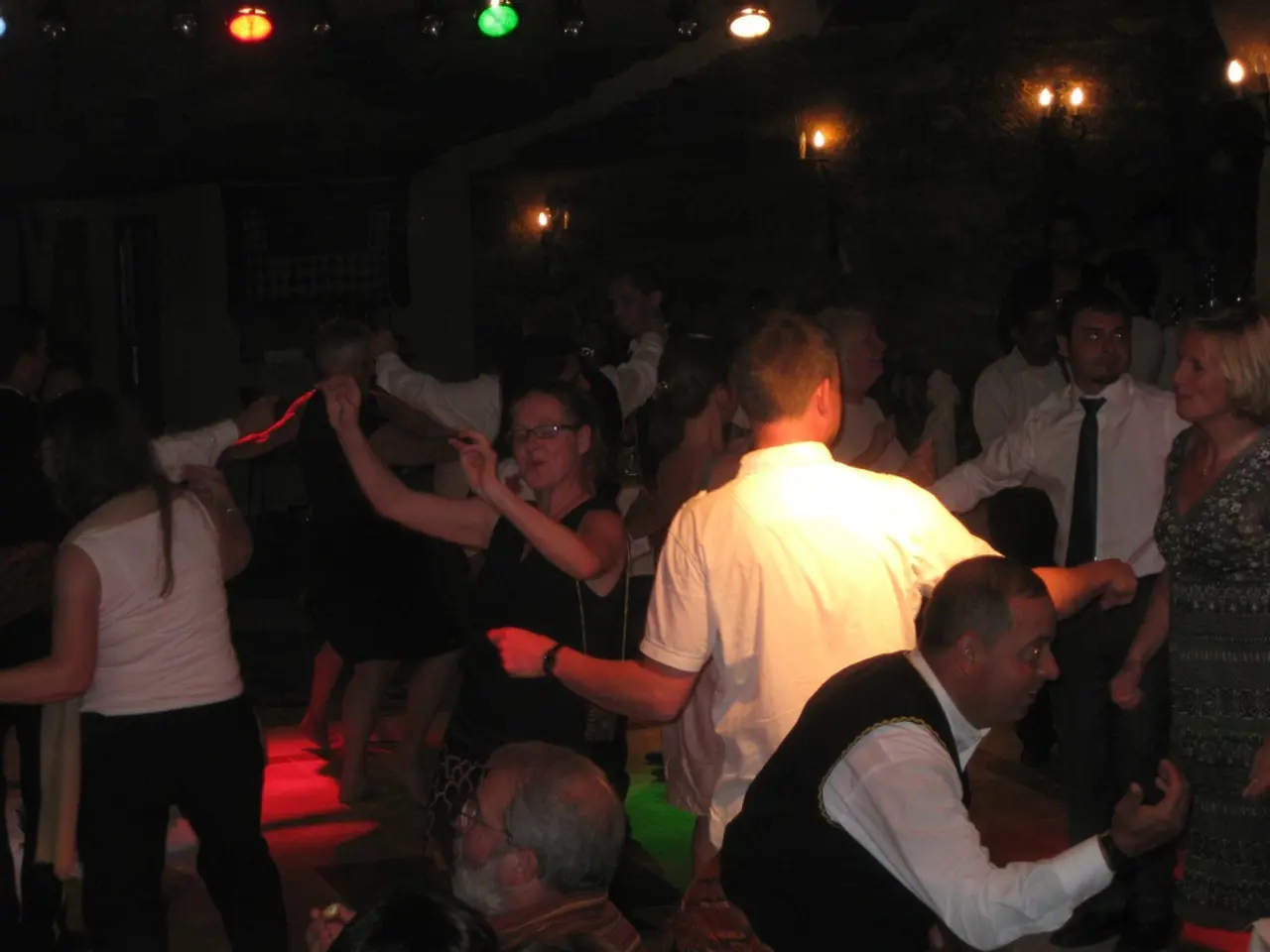Evening in the multigenerational home, Solingen referred to as Jalda night
The ancient Persian festival of Jalda Night, also known as Shab-e Yalda, was recently celebrated in Solingen, Germany, by the Persian-German Cultural Exchange and Sports Club. This annual event, which marks the Winter Solstice, symbolizes the triumph of light over darkness as the days start to get longer after the longest and darkest night.
History and Significance
The Jalda Night has its roots in pre-Islamic Iran, where it was celebrated to mark the winter solstice and to symbolize the victory of light over darkness. Families would gather late into the night, sharing stories, poetry, and eating symbolic foods such as pomegranates and watermelons, which represent the cycle of life, fertility, and the triumph of light.
The significance of Yalda Night lies in its role as a cultural tradition that fosters family unity and the celebration of the renewal of light and life. It represents hope for warmth and the continuation of life through the darkest period of the year.
Celebration in Solingen
Gholamreza Amani, the founder and chairman of the Persian-German Cultural Exchange and Sports Club, welcomed attendees in both Persian and German. Amani, who also founded P.D. Shahin and serves as the coach of a multinational football team, showcased his acting and singing talents during the celebration, alongside his deputy Layla Yapichi and other participants.
An Iranian club member dressed as an "old woman" explained the importance of the festival to attendees. Writer Kay Ganahl from Solingen and writer Anwar Alman, who lives in Düsseldorf, contributed creatively to the Jalda Night program. The decoration at the celebration symbolized a table laden with the fruits of the earth, reminiscent of Iranian families particularly cherishing the tradition of eating dried fruits, pomegranates, or nuts on the Jalda Night.
In the basement of the Solingen Multigenerational House, attendees enjoyed epic songs and recitations reflecting the rich cultural heritage of Persia. The celebration took place at the Haus der Begegnung (Multigenerational House) on Mercimek-Platz, opposite the Theater and Concert Hall Solingen.
Preserving Persian Heritage
Celebrations like the Jalda Night are essential for diaspora cultural organizations like the Persian-German Cultural Exchange and Sports Club. They help preserve Persian heritage, promote cross-cultural exchange, and maintain community bonds abroad. These celebrations often include traditional gatherings with music, poetry, and food typical of Yalda, serving both as cultural education and social community-building for Persian expatriates and interested locals in Germany.
Promoting Cultural Exchange
The Persian-German Cultural Exchange and Sports Club e.V. has been active beyond Solingen, promoting cultural exchange between Iranian residents and Germans, and other peoples and cultures. Ganahl shared his childhood memories of Christmas in Solingen and recited several poems published in "Dramatic Christmas" (2017).
The Jalda Night, much like the Christmas festival, emphasizes peaceful coexistence among people and hope. It is a testament to the power of culture in fostering understanding and unity, even in the darkest of times.
[1] Encyclopaedia Iranica, "Shab-e Yalda," https://www.iranicaonline.org/articles/shab-e-yalda [2] Iran Chamber Society, "Shab-e Yalda: Iranian Winter Solstice," https://iranchamber.com/culture/shab-e-yalda-iranian-winter-solstice [3] BBC Persian, "Shab-e Yalda: A Night of Mehman-e-Khodaha (Invitation of God)," https://www.bbc.com/persian/iran/features-55001377 [4] Persian-German Cultural Exchange and Sports Club, https://www.facebook.com/pg/Persian-German-Cultural-Exchange-and-Sports-Club-eV-105723926395160/ [5] University of Pennsylvania Museum of Archaeology and Anthropology, "Shab-e Yalda: Iranian Winter Solstice Festival," https://www.penn.museum/sites/iran/content/shabe-yalda-iranian-winter-solstice-festival
- The Persian-German Cultural Exchange and Sports Club celebrated the ancient Persian festival of Jalda Night, also known as Shab-e Yalda, in Solingen, Germany, emphasizing the victory of light over darkness and the renewal of life.
- During the Jalda Night celebration, families traditionally gather to share stories, poetry, and eat symbolic foods like pomegranates and watermelons, representing the cycle of life, fertility, and the triumph of light.
- In Solingen, attendees enjoyed a program that included epic songs, recitations, and a decoration symbolizing a table laden with the fruits of the earth, similar to Iranian families' traditions of eating dried fruits, pomegranates, or nuts on Jalda Night.
- Celebrations like the Jalda Night are crucial for preserving Persian heritage, promoting cross-cultural exchange, and maintaining community bonds for diaspora cultural organizations like the Persian-German Cultural Exchange and Sports Club, often incorporating traditional gatherings with music, poetry, and food typical of Yalda.




